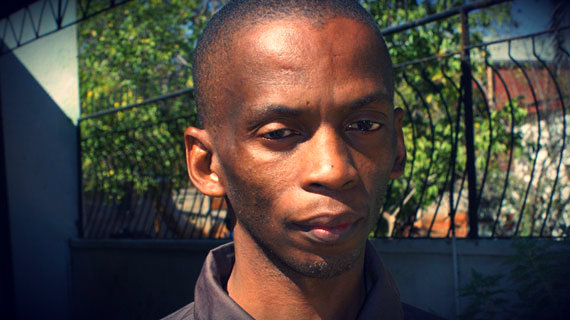
The spate of defeats which Highlanders Football Club have suffered to their arch nemesis Dynamos Football Club has generated a lot of heated debate with some calling for the head of coach Kelvin Kaindu and others arguing that the current crop of players just do not have the heart to beat Dynamos let alone win the championship.
Highlanders have become synonymous with the City of Bulawayo and the failure of the club to deliver on the big stage, especially to their arch rivals, usually means that the City of Kings resembles a funeral parlour when the team loses.
Is Bosso of today the same as Mantengwane of yesteryear which included the likes of Peter Nkomo, Mercedes Sibanda, Fanuel Ncube, Alexander Maseko, Douglas Mloyi, Willard Khumalo, the Ndlovu brothers, Titus Majola, Zenzo Moyo, Thulani Ncube, Rahman Gumbo and company? Many of these players were prepared to die on the pitch for the club, but is that spirit still present in the current crop?
We should not be necessarily fooled into believing that the old crop of players were paragons of football virtue and never lost to Dynamos or to any other team by large margins.
If my memory serves me right, Moses Chunga led a rampant Dynamos to a 5-0 routing of Highlanders as a player scoring a hattrick and later on led a team comprising Samson Choruwa and Norman Maroto known as Kidzznet to another 5-0 beating of Highlanders.
So losses to Dynamos are not new and the recent heavy loss is not a new phenomenon. One will recall that in 1983 a Highlanders team comprising Peter Nkomo, Fanuel Ncube, Douglas Mloyi, Richard Ndlovu, Titus Majola, Tymon Mabaleka and Madinda Ndlovu lost 0-6 to a Black Aces side inspired by Maronga Nyangela (before he moved to Black Rhinos).
So it is important not to be caught up in selective amnesia when discussing the issue so that we don’t just reduce the debate to a mere tribal contest.
This being said, there is nothing wrong with loving a team from one’s own geographic area just like Swansea is popular in Wales where it comes from and Everton is popular at Liverpool alongside the city’s namesake my beloved Liverpool Football Club.
- Chamisa under fire over US$120K donation
- Mavhunga puts DeMbare into Chibuku quarterfinals
- Pension funds bet on Cabora Bassa oilfields
- Councils defy govt fire tender directive
Keep Reading
Each team whether Manchester United in England, Barcelona in Spain, Juventus in Italy or Orlando Pirates in South Africa, have their own football philosophy and it is important to ask ourselves whether Bosso have a football philosophy and what philosophy is.
Just recently the British media was abuzz with the news that Mario Baloteli had bought into the philosophy of Liverpool FC when he tweeted “we are Liverpool FC, we pass the ball, we share the ball”.
Another Liverpool player, 20- year-old Suso told the Liverpool Echo that the club’s philosophy resonated with his own philosophy of “passing the ball”.
What is the philosophy of Highlanders? Does Highlanders groom players from the junior ranks who understand this philosophy and does the club buy players who fit into and understand the club’s philosophy and approach to football?
Obviously in modern football players can be bought from any part of the world, but the bottom line is that those players and coaches should understand the club’s history, philosophy and approach to football.
Maybe this has been lost at Highlanders and maybe some of the players just see the club as just any other? But does this mean this has been the case since 2006 when the club started losing continuously to Dynamos until the Independence Cup a few years ago?
Some argue that the club appears to have abandoned its vibrant junior policy which produced Madinda Ndlovu, Soul Ndlovu, Summer Ncube, Sydney Zimunya, Mercedes Sibanda, Abby Senda and later Ronny Jowa, Thuthani Moyo and Peter Ndlovu.
However, others argue that part of this legacy is premised on falsehoods because a large number of youngsters actually faked their ages and used their younger brothers’ birth documents.
I actually know a number of players who used their younger brothers’ names and excelled as “juniors”.
To an extent some of the famed junior products were not actually juniors and some even questioned the legacy of the ’80s and ’90s actually arguing that it was based on “age cheating” not football brilliance.
I remember seeing a player at Mzilikazi High School who had long played for the team’s reserve side, playing for the Highlanders first team years later, but using a different name and his age had been “slashed” considerably.
Assuming that the problem is with the failure of the current junior policy, let us explore a couple of facts.
The club has produced Eric Mudzingwa, Knox Mutizwa, Joel Ngodzo, Bobby Nkomo Teenage Hadebe and Lawrence Mhlanga.
Is it a bigger problem of Bulawayo or Matabeleland failing to produce quality junior player?
When is the last time Mzilikazi High School (where I once taught with great pride) or any other school won a national schools tournament?
Does this not indicate that the problem may be bigger and deeper than we think and may actually filter right down to schools and the once famed community clubs, most of which have collapsed?
Dumisani Nkomo is an activist, social entrepreneur and chief executive officer of Habakkuk Trust. He writes in his personal capacity.










